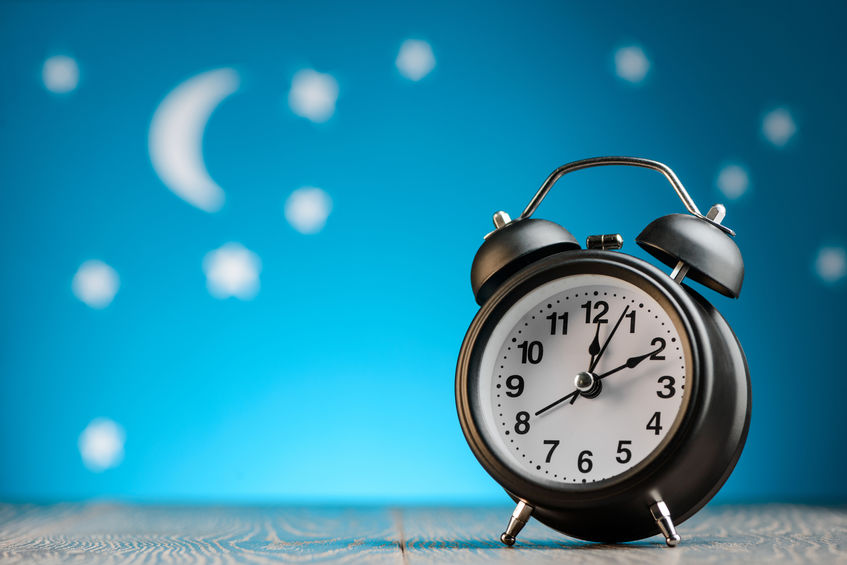Subconsciously, our bodies keep time for us through an ancient means — the circadian clock. A new University of California, Irvine-led article reviews how the clock controls various aspects of homeostasis, and how organs coordinate their function over the course of a day.
“What is fascinating is that nearly every cell that makes up our organs has its own clock, and thus timing is a crucial aspect of biology,” said Kevin B. Koronowski, PhD, lead author and a postdoctoral fellow in Biological Chemistry at the UCI School of Medicine. “Understanding how daily timing is integrated with function across organs has implications for human health, as disruption of the clock and circadian rhythms can be both a cause and effect of diseases from diabetes to cancer.”
The circadian clock generates a ~24 hour rhythm that controls behavior, hormones, the immune system and metabolism. Using human cells and mice, researchers from the Paolo Sassone-Corsi Laboratory at UCI’s Center for Epigenetics and Metabolism aim to uncover the physiological circuits, for example between the brain and liver, whereby biological clocks achieve coherence. Their work, titled, “Communicating clocks shape circadian homeostasis,” was published today in Science.
Circadian clocks align internal processes with external time, which enables diverse lifeforms to anticipate daily environmental changes such as the light-dark cycle. In complex organisms, clock function starts with the genetically encoded molecular clock or oscillator within each cell and builds upward anatomically into an organism-wide system. Circadian misalignment, often imposed in modern society, can disrupt this system and induce adverse effects on health if prolonged.
“Strategies to tune our clocks and boost rhythms have been promising in pre-clinical studies, which illustrates the importance of unraveling this aspect of our biology and unlocking the potential it holds for treatments and medicines of the future,” said Koronowski.
Without electrical light, high-speed travel, constant food availability and around the clock work-life schedules, our ancestors’ clocks were in constant harmony with the environment. However, due to these pressures of modern society, aligning our internal time with geophysical time has become a challenge in today’s world. Chronic misalignment — when eating and sleeping patterns conflict with the natural light-dark cycle — is associated with an increased risk of metabolic syndrome, cardiovascular disease, neurological conditions, and cancer. A large portion of the global workforce has atypical hours and may be particularly vulnerable.
“It has become urgent that we uncover the molecular underpinnings of the relationship between the circadian clock and disease,” explained Koronowski. “Deciphering the means by which clocks communicate across metabolic organs has the potential to transform our understanding of metabolism, and it may hold therapeutic promise for innovative, noninvasive strategies to promote health.”
This work is dedicated to the memory of Paolo Sassone-Corsi (1956-2020), a great scientist, mentor, and human. It was funded in part by the National Institutes of Health, Novo Nordisk Foundation and the National Institute of Diabetes and Digestive and Kidney Diseases.
1. Kevin B. Koronowski, Paolo Sassone-Corsi. Communicating clocks shape circadian homeostasis. Science, 2021; 371 (6530): eabd0951 DOI: 10.1126/science.abd0951

Razi Berry is the founder and publisher of the journal Naturopathic Doctor News & Review, which has been in print since 2005, and the premier consumer-faced website of naturopathic medicine, NaturalPath. She is the host of The Love is Medicine Project docuseries, The Natural Cancer Prevention Summit, The Heart Revolution-Heal, Empower and Follow Your Heart, and the popular 10-week Sugar Free Summer program. From a near death experience as a young girl that healed her failing heart, to later overcoming infertility and chronic fatigue syndrome and fibromyalgia through naturopathic medicine, Razi has lived the mind/body healing paradigm. Her projects uniquely capture the tradition and philosophy of naturopathy: The healing power of nature, the vital life force in every living thing and the undeniable role that science and mind/body medicine have in creating health and overcoming dis-ease. You can follow Razi on social media: Facebook at Razi Berry, Instagram at Razi.Berry and join the Love is Medicine group to explore the convergence of love and health. Look for more, and listen to more Love is Medicine podcast episodes here.




